Month: September 2021
Featured in The Plaid Horse
A new life is something to celebrate, but when a newborn foal has complications and a fever of unknown origin, the fear can be overwhelming. For Robin Hogan of Myrland Stables in Davie, Florida, getting her newborn foal the help it unexpectedly needed was the first priority.
Hogan fell in love with her mare Vogue, a black and white Gypsy Vanner, when it came to her barn for training. The two connected instantly. There was only one caveat; Vogue was pregnant. Still, Hogan welcomed the added bonus and was excited for the chance to raise a foal that could eventually join Vogue in the equine therapy program that she is planning.
Vogue had a somewhat difficult birthing, but eventually “My Wildest Dream,” known in the barn as Eros, was born. Everything seemed good as Hogan navigated the early days of caring for Eros and his mother after birth, but at only four days old, Hogan noticed that Eros’ playful, spirited attitude had changed.
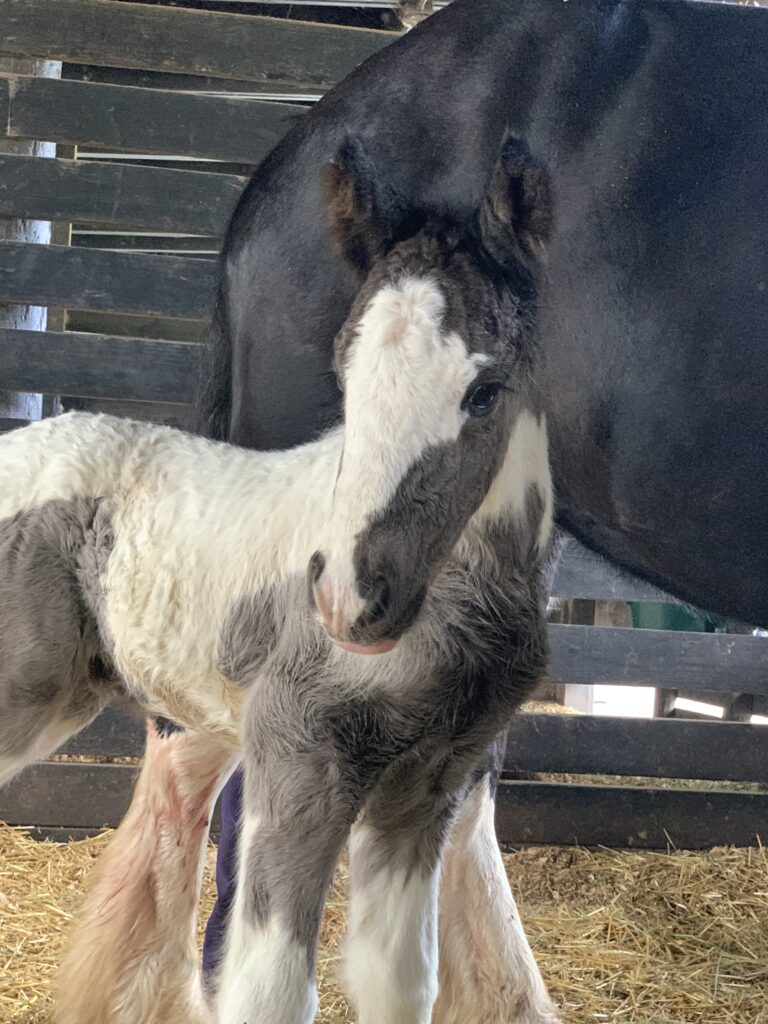
“He was a little bit on the lethargic side,” remembered Hogan. “I walked Eros and his mom out to the pasture, and he seemed to decline when he was there, like it must have taken all his energy to get to the pasture. It was surprising because just the day before he was running around, and even the night before he was running and playing. It just happened that quick. It was crazy. I noticed he was peeing out of his umbilicus (navel) which was a big red flag.”
Hogan was able to move Eros back to the barn and found that he had an extremely high temperature. Hogan called her veterinarian, Dr. Natalie Carrillo, and they were able to bring the foal’s temperature down slightly. However, when it spiked again, he was administered intravenous fluids and the decision was made to take Eros to Palm Beach Equine Clinic (PBEC) in Wellington, Florida.
Hogan noted, “PBEC had come highly recommended, and I thought, ‘If you’ve got a chance to save him, this is it.’”
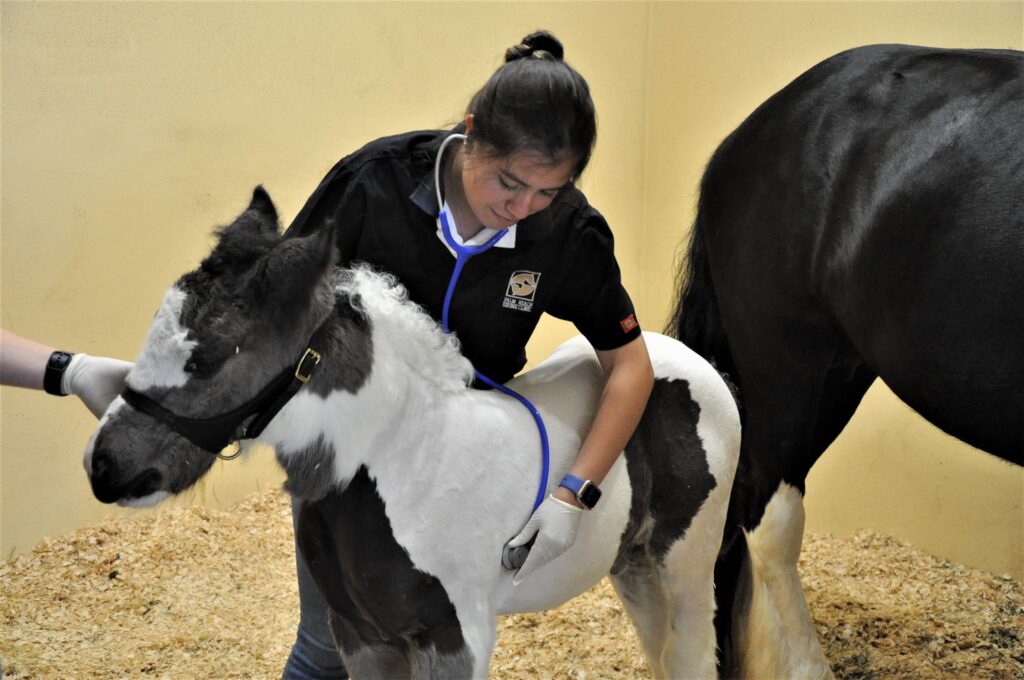
Dr. Clarisa Romero examining Eros at PBEC. 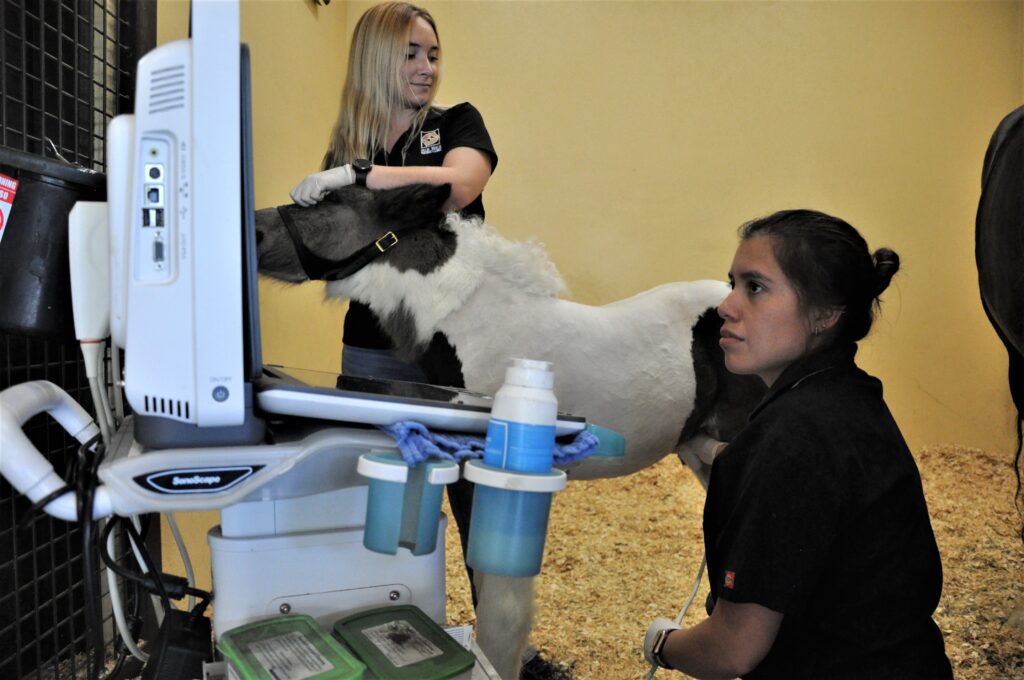
Dr. Romero performing an ultrasound on Eros. 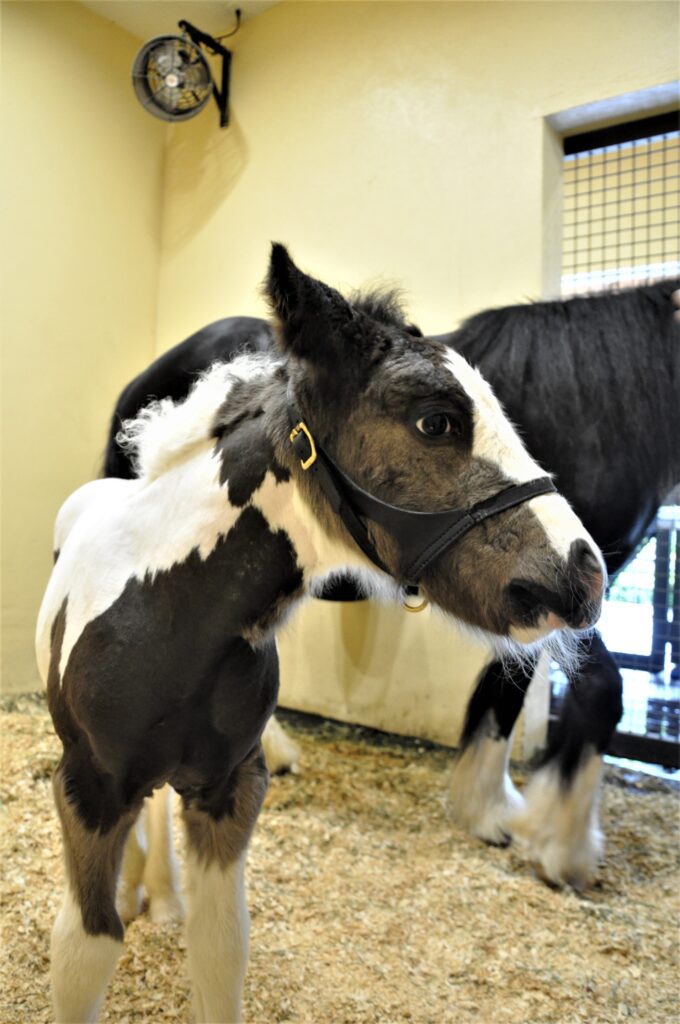
Eros owned by Robin Hogan 
Vogue with Eros
Eros was admitted to Palm Beach Equine Clinic and placed under the care of board-certified internist Dr. Peter Heidmann and Dr. Sidney Chanutin. Upon examination and palpation of the foal’s umbilicus, they noted urine dripping out.
During fetal development, the umbilicus is connected to the urinary bladder via a tube called the urachus. Normally, within a few hours after birth, the urachus will shrink and close at the navel, and then urine is diverted to empty through the urethra into the bladder. When the urachus does not close completely, urine can dribble out from the umbilicus. This condition is referred to as patent urachus, and it may happen within the first few weeks of life, even after the urachus originally appeared to have sealed at birth.
Eros was diagnosed with patent urachus, along with omphalitis (infection of the umbilical stump) and septicemia (bacteria present in the blood), which are severe complications commonly seen in foals.
Dr. Chanutin performed an ultrasound examination on Eros, which confirmed the patent urachus and helped determine the presence and extent of infection in the umbilical structures. Blood cultures and a complete blood count were taken, as well as bacterial cultures of the navel to determine which bacteria were causing the infection. This helped the veterinarians confirm the appropriate antibiotic choice for the foal.
In some cases, surgical removal of the infected navel structures is needed. Surgery can fully close the opening between the urachus and the bladder, but thanks to a quick and thorough veterinary diagnosis, Eros avoided surgery.
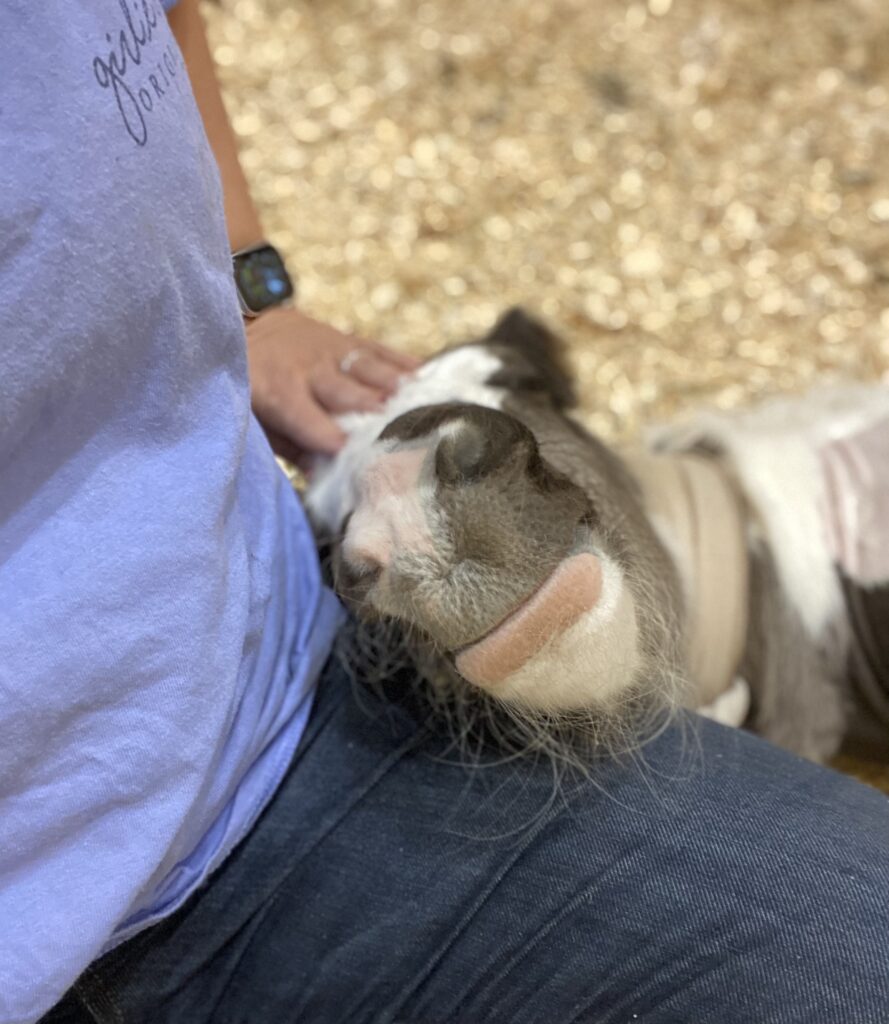

Robin and Eros at PBEC. 
Eros recovered at Palm Beach Equine Clinic for two weeks with his mother Vogue by his side. He was treated with systemic antibiotic therapy, anti-inflammatory therapy, and gastroprotectants (Omeprazole). His umbilicus was treated topically to promote closure of the patent urachus.
After discharge, Eros remained on medication for an additional four weeks. His owner reported that once he returned home, he soon returned to his normal, happy self. Hogan remarked, “I was going through all these emotions having never had a colt before, and then he puts his little head on my shoulder, and I thought well we’re going to give you all the care we can! It was such a scary learning experience for a new horse owner. It was a steep learning curve.”
Hogan credited her barn manager, Alicia May, for helping care for Eros, as well as Dr. Carrillo and the veterinarians of Palm Beach Equine Clinic. “I have such confidence now in my veterinary care team. I have to say it’s all a team effort,” she said. “I had no doubt that my horses were in the right place for this kind of situation.”
Having fully recovered, Eros is now seven months old, and Hogan is training him regularly, getting him used to working with humans and becoming less sensitive to his environment in preparation for his future equine therapy work with his mother Vogue.

Robin and Eros at his first hose show. 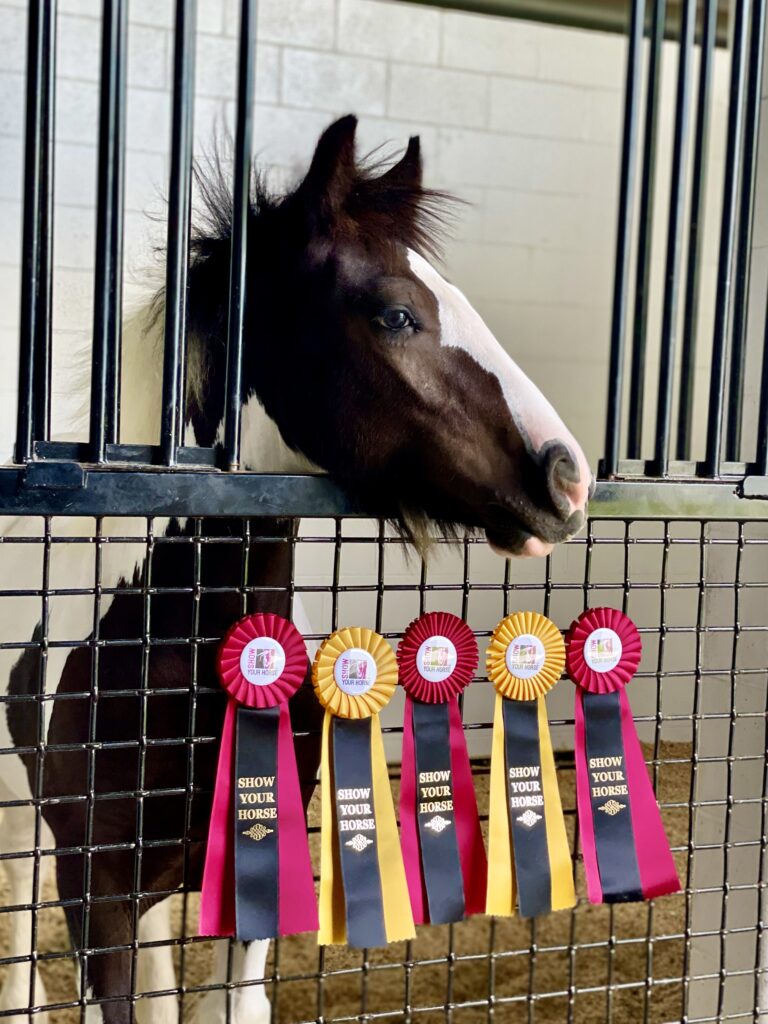
Palm Beach Equine Clinic is available 24/7 for any equine emergency and works regularly with referring veterinarians. For more information, call 561-793-1599.
Dr. Jorge Gomez and Dr. Christopher Elliott were amongst the over 100 veterinarians on the ground supporting the equine athletes at the 2020 Tokyo Olympic Games. Jorge Gomez, MVZ, MS, DACVS, served as the Official Veterinarian for the Mexican Show Jumping Team and is a surgeon with Palm Beach Equine Clinic, and Chris Elliott, BVSC, MRCVS, MANZCVS, DACVSMR, served as Veterinary Services Supervisor and is an associate veterinarian for Palm Beach Equine Clinic. We spoke with each of them about their experiences at this unprecedented international event.
What were your expectations for Tokyo, and did the Games live up to those expectations?
CE: Tokyo 2020 reached far beyond my expectations. The ability to achieve such an elite level of equestrian competition in the face of COVID-19 restrictions is remarkable. The whole Olympic organizing committee should be proud of this achievement.
JG: We all knew of the existing restrictions in place for COVID-19. There were mobility limitations in place to decrease the chances of spreading the virus, however, the Games were very well organized. The competition and training arenas were state-of-the-art facilities, and the stables were all under air conditioning, so those amenities couldn’t have been better.
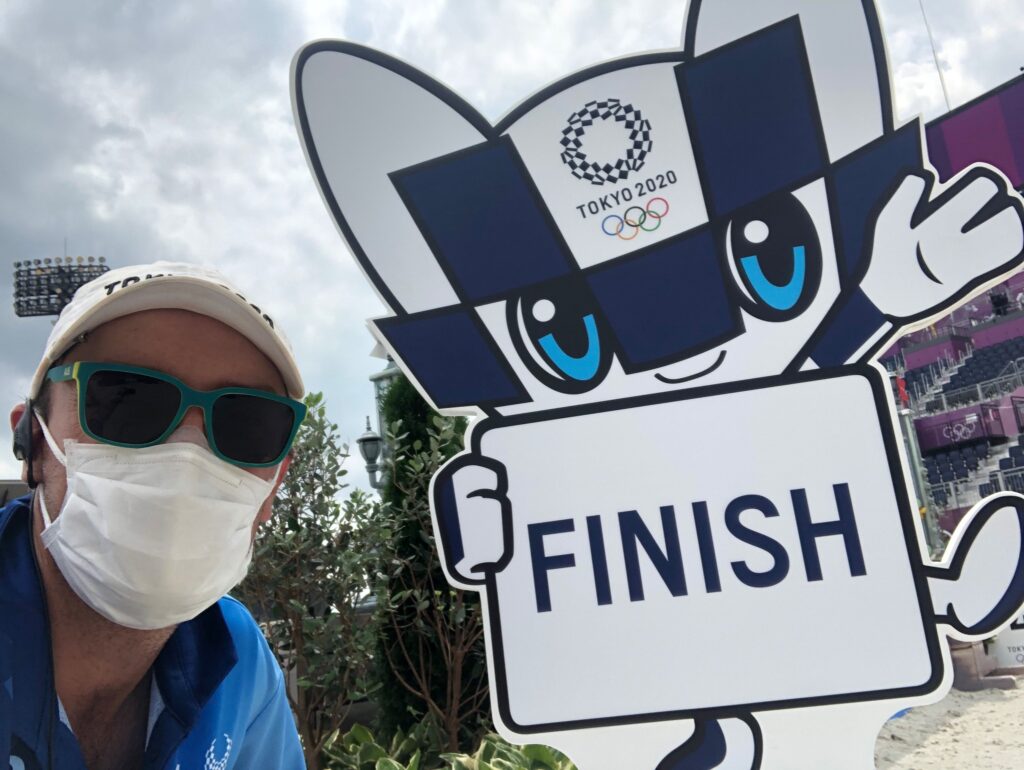
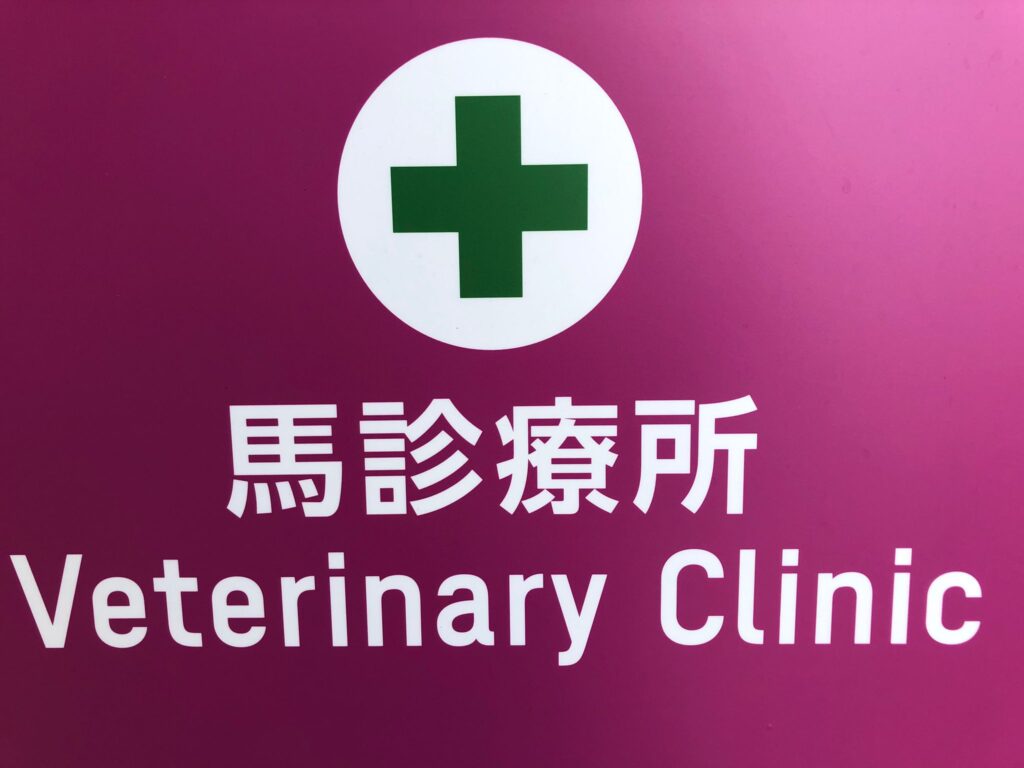
Dr. Chris Elliott concludes the 2020 Olympic Games with Miraitowa (the Olympic mascot).
What did you enjoy most about your time at the Olympics?
CE: Having a front row seat to the Olympic Games has been an honor and a privilege. I have most enjoyed working alongside my veterinary colleagues from across the globe. The Games spirit was strong among all the vets at Tokyo 2020.
JG: Most definitely the level of competition. We had the opportunity to watch the best athletes in all three disciplines dressage, eventing and show jumping.
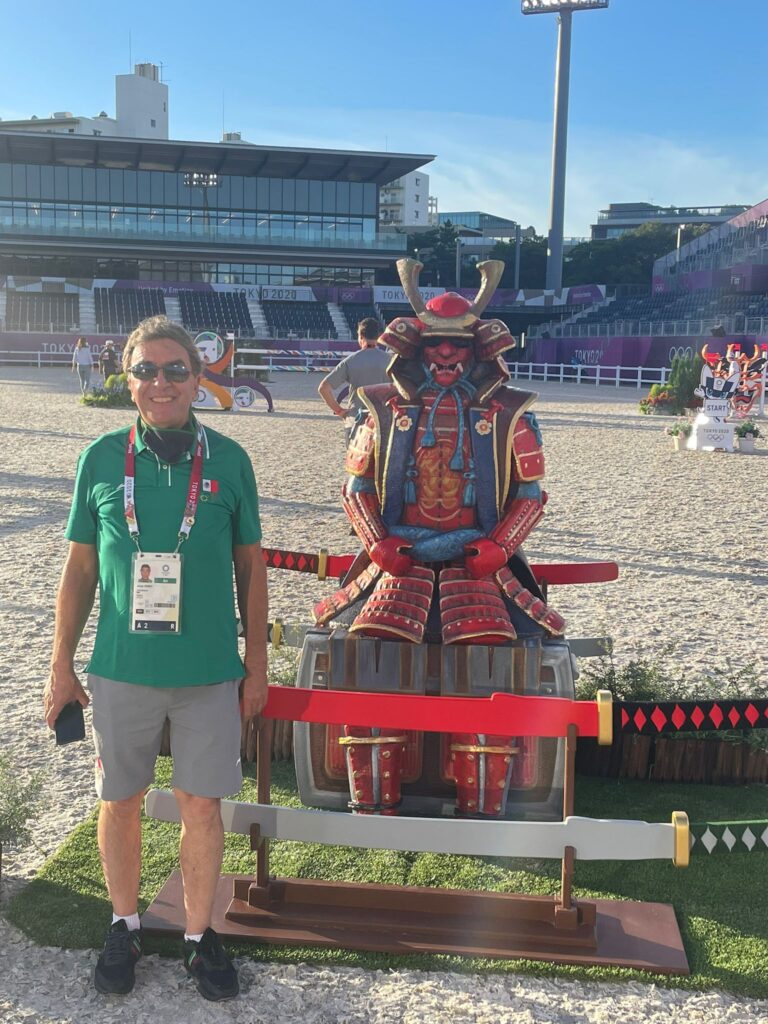
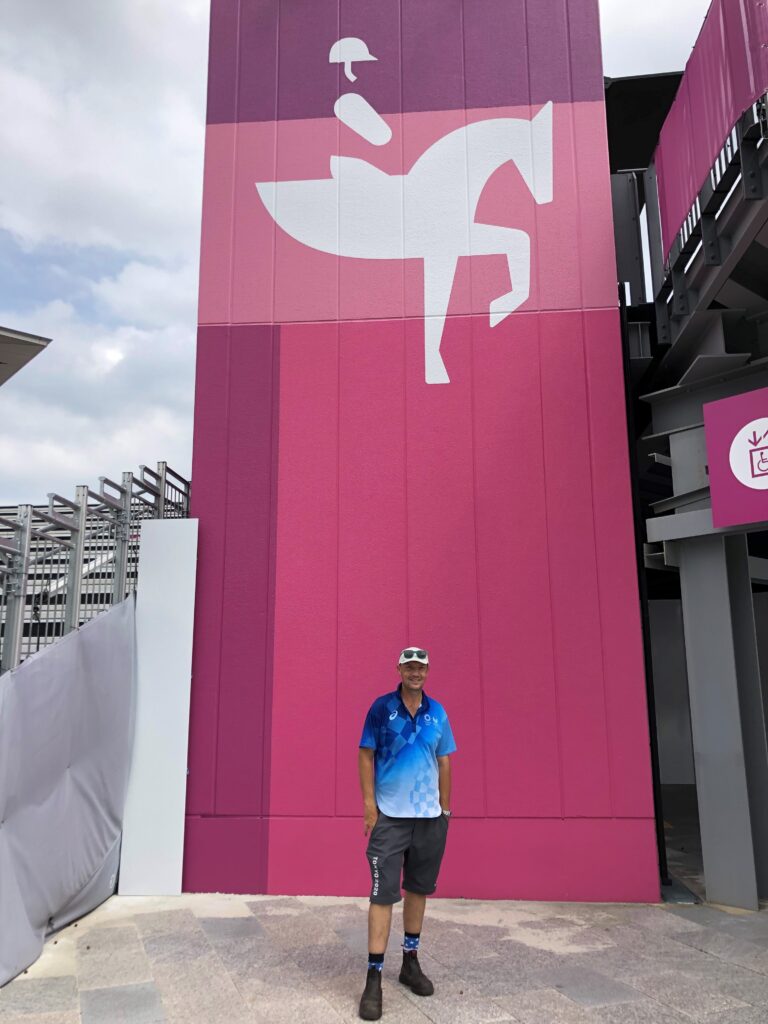
What was the experience like of working with such a diverse group of veterinarians?
CE: It’s always great working alongside veterinarians from all over the world. Veterinary medicine transcends language and cultural barriers and bonds us all in the goal of preserving equine health and welfare. In the face of many extreme challenges surrounding these Olympic Games, the professionalism, dedication, and efficiency of all vets at the event rose to the fore to ensure the very best in equine health, welfare, and performance.
JG: The experience is always nice and an honor to be a part of. There’s a group of us that have been at many of the international competitions and Olympic Games for years. Then, there are also new faces, and this is a wonderful opportunity for us all to meet. We share difficult cases from our practices as well as talk about new techniques and treatments.


Palm Beach Equine Clinic extends congratulations to all of the athletes that represented their respective countries at the 2020 Tokyo Olympic and Paralympic Games. While challenges were abundant, the events were awe-inspiring and the best of equestrian sport was on display.
PBEC also extends a special congratulations to our friends Dr. Mike Heitmann and Alice Womble, the owners of Sanceo, ridden by Sabine Schut-Kery. Sanceo was a part of the U.S. dressage team that won silver and had two personal best scores at the Tokyo Olympic Games.